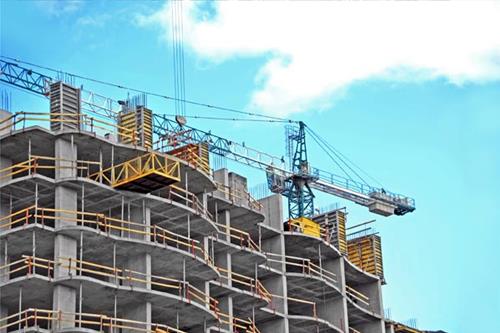Last-minute amendment saves construction industry
4/22/2019
| SHARE
Posted in Toronto Real Estate by Maurice Hyde| Back to Main Blog Page

Toronto’s construction industry may have just averted a calamity.
While seemingly innocuous, the Municipal Licensing and Standards (MLS) wanted to rescind a 12-year-old noise bylaw exemption for continuous concrete pouring, and had that happened housing delivery would have almost certainly suffered and resulted in reduced affordability—a problem already gripping the city.
But while Toronto city council voted 21-4 favouring the motion, it has been amended to allow continuous concrete pouring if granted a permit.
The Residential Construction Council of Ontario (RESCON) is part of a coalition of industry associations, including the Building Industry and Land Development Association, that educated city councillors on how their motion in its incipient form would crush the industry.
“Now the application for the exemption has to get sorted out. We’ll work with staff on that and provide our input as to what that should look like,” said RESCON President and CEO Richard Lyall. “I’m assuming that it will be reasonable and with the intent that we’re informing local residents as best we can and provide them with information as to when work will occur, and to minimize noise in the evening and late at night. We don’t want to antagonize local residents.”
Lyall also lauded the fact that decisions related to permitting will be left with city staff knowledgeable about the industry.
Concrete curing is a laborious process and having a small quotidian window in which to complete the task isn’t feasible for a few reasons, according to Lyall, arguably the biggest of which is consumers will foot the bill for longer construction cycles.
“When you work at night, that can cost more money, so we try to avoid it as much as we can but with the unpredictable nature of concrete it’s difficult to do that,” he said.
As for extended construction periods, “That cost gets passed onto the consumer,” continued Lyall. “As soon as you delay one project, you delay the start of other projects—and remember there’s only so much equipment we can access. That created another element of risk for new projects. A lot of new projects in the pipeline are all contingent on certain estimated timelines and then you throw a big risk element in there.”
In fact, even the permitting process for exemption from the noise bylaw adds an element of risk that Lyall says could elevate costs—which, again, will be paid for by consumers.
“When a builder has to apply for a permit, there’s no doubt that risk is reflected in the contract. A contractor will say there’s uncertainty here and they can’t do things within certain periods of time, so a contingency fee is put into the contract in case they get jammed up by something beyond their control.”
Housing Affordability, New Condos, New Developments, New Homes, Toronto Condo Market, Toronto Housing, Toronto Real Estate

Thinking of buying or selling a property, or have a question regarding the real estate market? Fill out the form below and we'll get back to you promptly.
